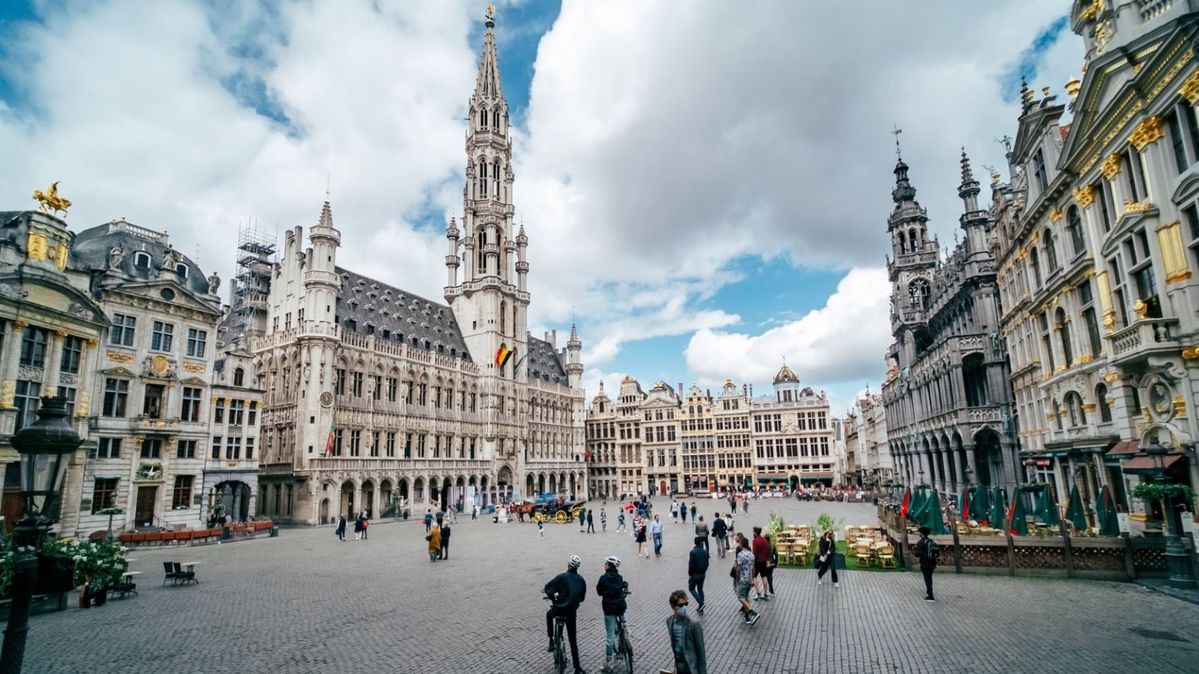Covid travel rules ease in cities around the globe
Beer is once again flowing in Brussels as local Covid rules and border measures fall.

Brussels’ sidewalk cafesare once again packed with French- and English-speaking guests. Popular restaurants are booked until late in the evening, and the country’s famous beers were pouring freely in its many bars.
In places around the world where travelers have been locked out by border rules and local health prohibitions, Covid-19 travel restrictions are starting to fall.
The bustling scene in Brussels is backed up by data showing that border measures are easing just as many cities are beginning to loosen local rules, according to a new analysis by Bloomberg News.
Bloomberg looked at public health restrictions from 40 cities around the world that have been tracked since early August, as well as 30 more cities tracked since mid-September.
Each city in Bloomberg’s analysis gets a grade of “more open,” “moderately open” or “less open” based on measures such as capacity limits at restaurants and bars, mask rules and other criteria.
On August 10, only 33% of cities had a “more open” grade. As of last week, 56% of cities have that rating.
The data are confirmation of what many people are seeing when they travel abroad or socialize near home – as vaccinations increase and governments adjust to a baseline level of cases, more places are dropping public-health measures and border rules, and business and leisure travel is coming back along with local life.
More cities open up
In Italy, a government order allowed theaters, cinemas and concert halls to operate at 100% capacity earlier this month.
On Sunday, Saudi Arabia eased mask rules and dropped social distancing regulations for public places, transport, restaurants, cinemas, ahead of a large entertainment festival that runs through the spring.
Yet not everything is completely back to normal. Brussels this month instituted a new requirement that people show proof of vaccination to enter many establishments, and masks are ubiquitous on service workers and required on public transportation. Nightclubs are back open, and larger private events are allowed again.
But in the country’s Flanders region, the government is considering new mask rules for schoolchildren and encouraging working from home, after seeing a new wave of cases, Flemish public broadcaster VRT reported on website.
The reopenings are happening in parallel with shifting attitudes about pandemic health priorities.
A recent poll of residents in six countries – the U.S., U.K., Japan, Sweden, Germany and France – found growing support for the goal of “protect the economy” and mostly falling support for “limit the spread” of Covid.
The survey, conducted by the communications firm Kekst CNC, likewise found little support for lockdown-style public health restrictions, even in a hypothetical situation where hospitals were beginning to strain under the weight of cases.
Travel on the rebound
The increase in openness comes just as travel rules are loosening, as well.
The U.S. plans to reopen its borders to vaccinated travelers beginning Nov. 8, a move that will almost certainly provide a boost to global business and leisure travel. EU countries have been reopening their borders since summer, including to arrivals from the U.S. The U.K. has likewise loosened its borders over the past month, joining EU neighbors.
That’s in turn translated through to companies that depend on travelers.
“We're pleased with the momentum we're seeing in the recovery and our confidence continues to grow about strong long-term return of travel across all segments,” Tony Capuano, chief executive officer of the hotel chain Marriott International, said at an investor conference last month.
Air carriers are seeing the effect, too. Delta Air Lines last week reported its first quarterly profit since the pandemic began, saying consumer travel in the U.S. had returned to 2019 levels and that business travel is resuming.
“As the variant recedes, business travel has picked up over the last month with volumes now reaching the highest level we’ve seen in the recovery,” Delta CEO Ed Bastian said on the company’s earnings call. United Airlines and American Airlines said they saw similar trends.
Even so-called Covid Zero places where governments closed borders and sharply limited activity have begun to open up. Singapore, for example, announced plans earlier this month to open travel to vaccinated American and British travelers, and plans similar loosened rules for people from Switzerland and Australia.
And in Sydney, the city of 6 million people has finally lifted lockdown rules after 107 days, as the government debates whether to reopen travel to visitors.
There are exceptions, of course. In cities like Moscow, where vaccination rates are lower, authorities are planning harsh new limits on activity.
Unvaccinated people over 60 will have to remain at home for four months starting October 25, Moscow Mayor Sergei Sobyanin said in a blog post Tuesday, as the Russian capital faces a surge of Covid-19 infections amid widespread hesitancy to get domestic inoculations.
Only a third of people in the vulnerable age group have been vaccinated, despite accounting for 86% of Covid deaths, Sobyanin said in justifying the lockdown.
The decision comes as new infections in Russia passed 30,000 this week for the first time since the crisis erupted last year, with deaths reaching a record high of 1,015 on Tuesday.
Prime Minister Mikhail Mishustin on Tuesday called for October 30 to November 7 to be declared non-working days nationwide in order to slow transmission.
Other cities have put up new limits as well. Los Angeles ‘s public health rules are stricter than they were over the summer, as the state went through an increase in Covid-19 cases. And in the U.K., health officials are watching a sudden surge in new infections, despite a high rate of vaccination.
This article is published under license from Bloomberg Media: the original article can be viewed here